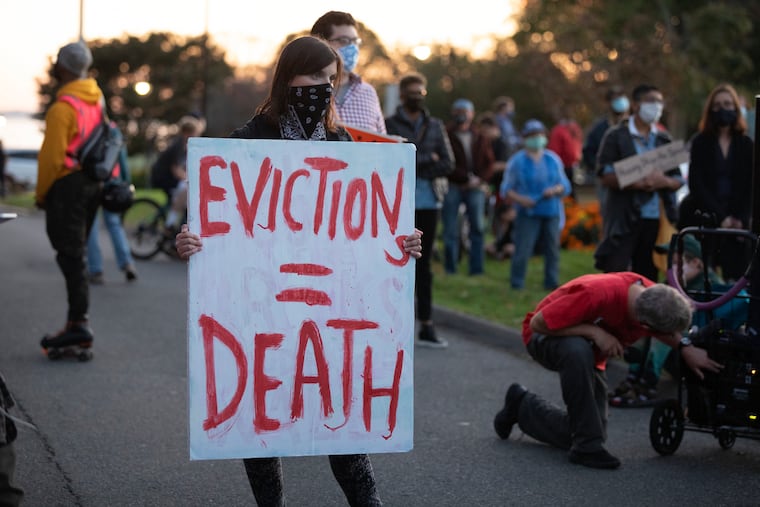Eviction is the New Year’s gift that no one deserves but millions could get | Editorial
States that allowed eviction bans to expire earlier experienced faster growth in coronavirus cases and deaths. That's why the CDC should extend the moratorium.

Millions of households nationwide could find themselves evicted from their homes soon after New Year’s Day as one of the last safeguards from eviction during the pandemic, the Centers for Disease Control and Prevention nationwide eviction moratorium, is set to expire.
In September, the CDC issued an order halting all evictions nationwide. The order was significant, and explicit about the importance of preventing evictions during a pandemic. Keeping people in their homes can ensure a space for quarantining, enhance their ability to comply with stay-at-home orders, and reduce pressure on homeless shelters.
The timing of the order’s expiration couldn’t be worse. New cases and deaths have reached an all time high as the nationwide death toll surpasses 300,000. If an eviction moratorium is an “effective public health measure,” as the CDC clearly states, the United States needs it now more than ever.
As the pandemic has gotten worse, so has the financial situation of many households. According to one estimate, 12 million renter households will owe an average of $5,000 in rent by the end of the year. A Census Bureau survey estimates that nearly 400,000 adults in Pennsylvania are either behind on rent or mortgages or have no confidence that they’ll be able to make payments in the coming weeks.
Black and Hispanic families with children, particularly those headed by a single woman, are at the highest risk of eviction.
It’s not that tenants aren’t trying to pay. The Federal Reserve Bank of Philadelphia found a 70% increase in the number of people paying rent on a credit card — setting the stage for a future crisis in personal debt.
In Philadelphia, City Council failed to renew an eviction moratorium despite extending other critical measures, such as the Eviction Diversion Program. Gov. Tom Wolf claims he exhausted his ability to impose a moratorium. The Philadelphia Municipal Courts stepped in and halted the execution of evictions. That order also expires on Dec. 31.
» READ MORE: Solving landlord-tenants disputes outside of court and without eviction should be the norm. | Editorial
The CDC’s ban on evictions does have loopholes, and it hasn’t stopped some people from losing their homes. But moratoriums make a difference. An analysis by Princeton’s Eviction Lab found that the number of eviction filings in cities increased after a moratorium was lifted. This board’s analysis of residential eviction filings in Philadelphia Municipal Court found that this fall, under the CDC moratorium, there were about 55 fewer daily filings compared with the months before the pandemic.
A study helmed by Kathryn Leifheit of UCLA found that states that allowed moratoriums to expire earlier experienced faster growth in coronavirus cases and deaths.
As the first Americans get the coronavirus vaccine, the end to this pandemic may be in sight. The question is how many people will survive the winter to get the vaccine. A critical part of the final push is maintaining people in their homes. The CDC must extend the order halting evictions — and Congress needs to step up and provide critical financial relief to tenants, landlords, and homeowners. An eviction avalanche leading to a surge in coronavirus and homelessness starting on New Year’s Day is no way to set 2021 as a year of recovery.